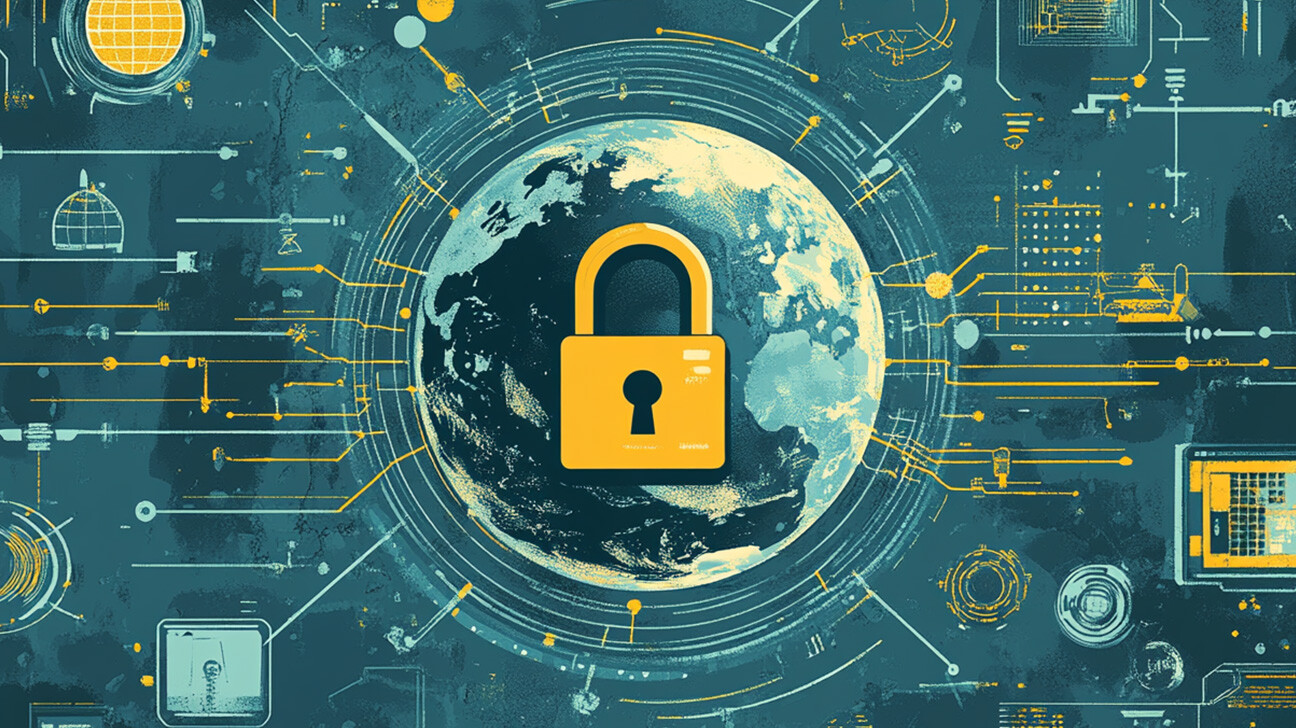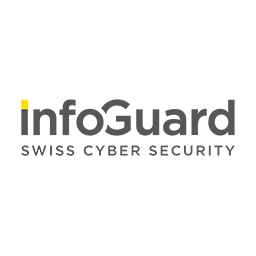Career 15 Vacancies 250+ Employees
Career 15 Vacancies 250+ Employees
InfoGuard AG (Headquarter)
Lindenstrasse 10
6340 Baar
Switzerland
InfoGuard AG
Stauffacherstrasse 141
3014 Bern
Switzerland
InfoGuard Deutschland GmbH
Landsberger Straße 302
80687 Munich
Germany
CYBER SECURITY: INNOVATIONS, TRENDS AND CHALLENGES IN THE AGE OF ARTIFICIAL INTELLIGENCE

The twelfth InfoGuard Innovation Day on 24 January 2024 was once again a total success with over 750 participants from across the entire DACH region. A huge amount of knowledge was transferred throughout the day: across 26 presentations and at virtual exhibition stands, InfoGuard experts and 15 leading security and network manufacturers set out the issues to look out for in cyber security and cyber defence in the future. Highlights included keynote speeches by Dr. Hannes P. Lubich on the thrilling field of “artificial intelligence” and lessons learned from current cyber attacks by Ernesto Hartmann. Don’t worry if you missed the event – this article will get you up to speed on the most important insights and lessons learned from the keynotes and InfoGuard presentations.
The good, the bad and the ugly – keynote on AI and cyber security
The keynote speech by Dr. Hannes P. Lubich, which kicked off the event, elucidated the tensions surrounding artificial intelligence (AI) and the good and bad aspects of cyber security and was met with great interest. The renowned expert and InfoGuard board member also shed light on a host of uncertain legal, political and social consequences.
Hannes P. Lubich explained that there is a whole lot of hype around analytical AI in particular, and that this will change the cyber world forever. Both defenders and attackers stand to benefit. Of course, AI offers companies a great deal of potential: it enables cyber security experts to analyse complex databases more quickly, carry out attack simulations, execute adaptive responses or adjust control systems dynamically and make their systems more resilient through situational adjustments. At the same time, however, attackers are using AI for their own ends and are much more willing to take risks. Cyber criminals are using AI for their own purposes, such as to produce deep fakes from public stock material, automate social engineering attacks, professionalise their attack networks or to enable the automatic generation of malicious code. According to Lubich, AI is on course to change many things, which is why it’s important to keep a close eye on the topic.
Insights from current security incidents and a look at the current threat situation
In his keynote speech, Ernesto Hartmann, Chief Cyber Defence Officer at InfoGuard, spoke about the work of our CSIRT over the past year and about current trends in cybercrime. The InfoGuard CSIRT team processed a total of over 260 cases from the DACH region in 2023. This represents an increase of 65 percent compared to the previous year.
The figure is an impressive testament to the fact that cybercrime is a business case with almost inexhaustible potential. We can clearly see that cybercrime is becoming ever faster, more automated and more professional. This is clear from a case from last year, in which it was found that encryption took place after just eight seconds. Since the ransom demand was “only” US$2,000, it can be assumed that many companies were targeted by the attack.
Around 46 percent of all security incidents in 2023 were attributable to phishing, an area in which the AI factor is adding to the danger. It is therefore essential that we strengthen our cyber defences. With 24/7 monitoring from a dedicated SOC, it is possible to identify cyber attacks more quickly and respond to them immediately, concluded Ernesto Hartmann.
In a total of ten presentations, the InfoGuard experts demonstrated their findings from cyber attacks as well as trends and challenges that will exercise the cyber world in the future. We’ve briefly summarised the most important findings for you:
For example, the Penetration Testing Team demonstrated how a threat-intelligence-based red-teaming approach can be used to strengthen resistance to cyber attacks in a targeted manner. The Cyber Defence Center (CDC) gave an impressive demonstration of why it is time to spring-clean your own cyber security and use the findings from hundreds of incident response cases in recent years to let go of bygone security strategies. Of course, topics such as crisis simulation, cyber security compliance based on NIS2, Azure Cloud, OT/IoT or the targeted reduction of attack surfaces through system hardening were also discussed by the experts from the Cloud Competence Center and the InfoGuard consulting and engineering team.
15 leading security and network partners on board
Additionally, 15 InfoGuard security and network partners, including Palo Alto Network, Tanium, Cato Networks, Extreme Networks, Vectra AI, Akamai, Vulcan Cyber and HPE / Aruba Networking, showcased their latest technologies with fascinating presentations and their presence at the virtual exhibition stands. The presentation topics ranged from IoT and OT security, zero trust, XSIAM and vulnerability management to cyber fraud cases, SCION, SASE and security awareness.
InfoGuard Innovation Day 2025 – exciting innovations are on the horizon
The twelfth InfoGuard Innovation Day was an all-round success, which is also reflected in the many positive responses from participants. Compared to the previous year, a striking number of participants came from Germany and Austria. The InfoGuard Innovation Day 2025 will take place on Wednesday, 22 January 2025 and is definitely something to look forward to: the thirteenth edition of the Innovation Day will feature a raft of innovations. Why not book the event today and secure your place for next year (again). Register now – we look forward to seeing you!
Blog

Zero Trust Maturity Model 2.0: Reifegradmodell auf 5 strategischen Säulen

SWIFT CSCF v2025 erhöht den Druck: Nur cyberresilient ist compliant



